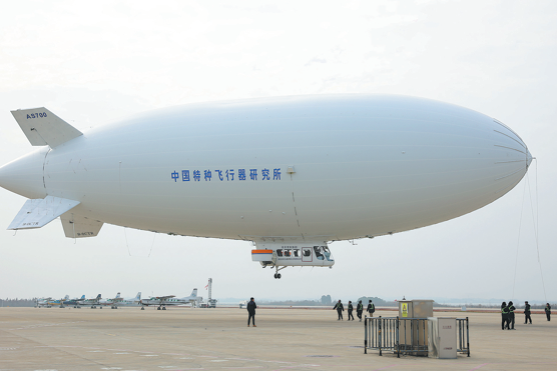Putting on a gloss when times are tough

| Juliet Schor, a sociology professor, has said that for many, "cosmetics are an escape from an otherwise all-too-drab everyday existence". Provided to China Daily |

As growth in sales of luxury goods slows, the 'lipstick effect' begins to show its colors
Fang Jinqi, 32, says what she needs to do most now is to develop a more thrifty lifestyle because her job as a property agent business is stagnating.
The big fan of Hermes bags who used to buy a new one almost every two months says she has not done so for at least six months.
To make up for the loss, Fang is now turning to cheaper cosmetics, such as lipsticks, which she says "can be easily picked up from chain stores."
Leonard Lauder, chairman of Estee Lauder Companies, says he noticed sales of lipstick rose during the economic slump after the Sept 11 terrorist attacks in the US in 2001. Lauder says when the economy sours people are more willing to spend on smaller indulgences such as lipstick rather than splashing out on expensive luxury bags. It is a phenomenon known as the lipstick effect and has been recognized historically.
Professor of sociology Juliet Schor wrote in her book The Overspent American, published in 1999, that anti-wrinkle cream, moisturizers, eye shadow and powders, lipsticks and facial makeup can provide "hope in a bottle" for people, especially women, who are "looking for affordable luxury, the thrill of buying at the expensive department store, indulging in a fantasy of beauty and sexiness".
In short, "cosmetics are an escape from an otherwise all-too-drab everyday existence", she wrote.
So is the same thing happening in China?
Its GDP rose 7.8 percent last year, the first time that the country's growth rate has fallen to less than 8 percent since 1999. Its economy grew 7.7 percent in the first quarter of this year.
The country's purchasing managers' index dropped to a nine-month low of 49.2 points last August. A figure below 50 indicates a contracting economy. Fan Junlin, an economics researcher at the Agricultural Bank of China, said in an interview with Xinhua News Agency: "Weak external demand remains the biggest factor dragging down China's economic growth."
But as industrial and manufacturing sectors shrunk last year, sales of consumer goods and fashion brands soared. According to the market research firm Euromonitor International, the retail value of the beauty and personal care sector in China grew from 184.1 billion yuan ($30 billion; 23 billion euros) in 2011 to 202.1 billion yuan in 2012. L'Oreal Group's market share grew 11.2 percent in 2012 from 10.8 percent a year earlier. Shiseido Co and Unilever Group have both had a 0.1 percent increase in terms of market share.
A survey of the global retail market published by the consulting firm A.T. Kearney showed China moved up from sixth place in 2011 to third place in 2012. It predicted the growth rate of China's retail sales revenue will double by the end of this year despite rising labor costs and rents.
The German retail and wholesale group Metro AG opened 12 new stores in China last year to bring the total number to 64. It plans to have about 100 stores by 2015; Wal-Mart Stores Inc opened 30 new stores in China last year; Carrefour S.A. opened 18; Tesco Plc opened 13; Auchan S.A. opened 10.
Zara, a leader in the fast fashion industry, opened 31 more stores in China in 2012 to bring the total number to 123. Uniqlo Co, an overseas fast fashion brand in China, opened 71 more stores in China in 2012, bringing the total number to 184 by the end of last year.
Conversely, luxury brands saw their growth slow down in China in 2012 after years of rapid rises in sales. According to the US consulting firm Bain & Co, growth in the Chinese luxury market fell to 7 percent in 2012 from 30 percent in 2011.
Italian brand Gucci said at the beginning of this year it would keep the opening of new stores in China at three to four a year. At its height it was opening 10 to 15 stores annually. Bernard Arnault, chairman and CEO of luxury brand LVMH, said on Jan 31 that Louis Vuitton will not open boutiques in second and third-tier cities in China in an attempt to avoid over-exposure.
According to Nick Debnam, Asia-Pacific chairman of consumer markets at KPMG China, the lipstick effect is an economic phenomenon where even when luxury spending slows, the spending on cosmetics tends to hold up pretty well. Cosmetics are relatively affordable compared with other luxury items and while people delay their bigger ticket luxury purchases, for cosmetics there is less deferral, or "switching of buying habits".
People are less likely to stop buying fast-moving consumer goods because they are seen as daily necessities. Debnam added that it does not necessarily mean the money saved by not buying luxury goods will be transferred to the purchase of daily necessities.
He adds when the economy declines, some people will start to buy "relatively less expensive lipsticks or makeup to feel good".
But he says he witnessed an improvement in the situation in the latter part of last year, with sales gradually returning to normal, especially in Hong Kong. In the Chinese mainland market, he said things will get better probably in the second half of this year.
The lipstick factor covers more than cosmetics. It includes movies, as witnessed by the popularity of Charlie Chaplin films during the Great Depression in the US in the 1930s.
According to the former State Administration of Radio Film and Television, China's box office sales hit 17.07 billion yuan in 2012, surging 30.18 percent year-on-year and making the country the world's second-largest movie market.
The low-budget comedy Lost in Thailand, which debuted on Dec 12, took an unprecedented 1.2 billion yuan in less than one month, out-performing Avatar and Transformers: Dark of the Moon to become the highest-grossing movie ever shown in Chinese theaters.
"Imagine how much a young guy has to pay for a two-hour date, including dinner, shopping and everything else. Check out the labels of whatever brand in the department store. A sweater will cost as much as 1,000 yuan. A Prada bag will cost the guy about 10,000 yuan if he really wants to give his girlfriend a special gift. The date can be very expensive," says Liang Wei, founder and president of Beijing Magilm Pictures which specializes in marketing movies and is the largest company of its kind in China.
"But he can pay about 100 yuan for two for a movie, which can last around two hours," he says.
Of course, there are many more options for recreation in first-tier cities such as Beijing, be it dining out or drinking with friends or singing karaoke. However, Liang says they all "require a certain mood to make sure everything is right".
"In cities, going to the movies is the easiest and cheapest pastime. Over time, Chinese audiences, especially younger ones, have developed the habit of regularly going to see movies," he adds.
According to research conducted by his company, regular movie-goers, who watch films in theaters at least once a month, numbered 80 million in 2011. Box office receipts in China soared in 2012 partly because people went to the cinema as many as three times a month.
The market is expanding. In January 2012, the daily number of showings of films was 40,000. The number almost doubled in January this year, reaching 75,000.
"The capacity of the market has expanded. It is the same as supermarkets. If you can find a supermarket on your way to work, the amount you spend in the store will increase," Liang says.
shijing@chinadaily.com.cn
(China Daily Africa Weekly 05/31/2013 page20)
Today's Top News
- ROK leader's visit to help boost bilateral ties
- China's new plan, world's new opportunities
- Expert: US actions, words don't match
- China's diplomacy to blaze new trails
- Visits point way to better future for all
- PLA tests joint combat strength for second day
































